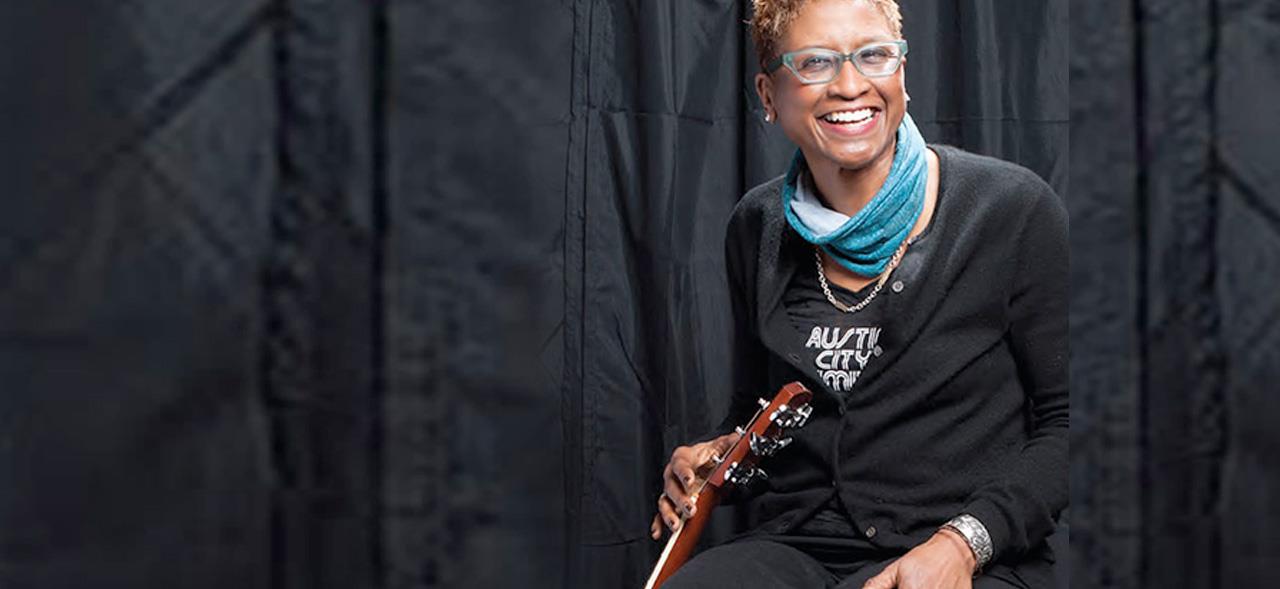Paula Boggs translated her love of music into a fund benefiting KEXP radio.
Not many can boast a background as wildly varied as that of Paula Boggs. Having attended high school in Germany and Italy, she studied at Johns Hopkins University, where she co-founded the women’s cross-country and track-and-field programs and began training as a U.S. Army paratrooper through an ROTC scholarship. She went on to work in the legal department at the White House, became a federal prosecutor and later was hired as general counsel at Starbucks. Through it all, she was always drawn to music.
So when Boggs, 53, retired from Starbucks, she and her spouse, Randee Fox, opened a donor-advised fund at Seattle Foundation that directs the majority of their giving to an enduring champion of Seattle’s independent music scene: public radio station KEXP-FM. Rather than donating directly to the station, Boggs, of Sammamish, chose to support KEXP through a partnership with Seattle Foundation, in part because of the tax advantages from structuring her giving as a fund. But Boggs says she also wanted to make a statement in support of Seattle Foundation’s mission to build a healthy community, which includes a vibrant arts scene.
“I elected to go with Seattle Foundation because Seattle is my community. What makes us special is the combination of our unique geography, our off-the-charts intelligence and our artistic vibe. No matter who you are, you can always participate in Seattle and find a way to make a difference.”
Boggs could write a book about her myriad life experiences. Instead, she writes songs. In 2005, Boggs enrolled in a yearlong songwriting class through University of Washington’s Professional and Continuing Education program, where she began playing open-mic shows and meeting other musicians. Now, the Paula Boggs Band performs bluesy rock originals at intimate venues throughout the Puget Sound area. AllMusic calls her sound “part Janis Ian and part Carole King, with a wee bit of Tracy Chapman thrown in.”
For Boggs, music is a pastime, but she is sensitive to those for whom music is a vocation. “I realize how special it is to be where I am,” she says. “I’m able to create music and perform it, unburdened by any need to make money from what I do. But I spent a year in that songwriting program with people trying to grab at the brass ring in one form or another. For them, KEXP symbolizes their only hope of being heard.” The experience gave her a greater appreciation for KEXP’s singular role for emerging local artists. She now serves on the KEXP board of directors.
“It’s important that music be discovered by audiences through vehicles other than commercial radio,” Boggs says. “And I want to support that.”
Originally written for an Annual Report by Stuart Eskanzi.

